Google Trends predicted the winners of the past two presidential elections in the Philippines. Except for former President Donald Trump’s loss in 2020, Google Trends predicted the winners of the previous four presidential elections in the United States and the past six in Canada since the company’s search data were made available in 2004.
Google Trends is a portal that allows people to explore large data on search requests. Its tracking of search interests for presidential candidates, according to the paper “Google Trends as a Predictor of Presidential Elections,” are “accurate predictors of election outcomes.”
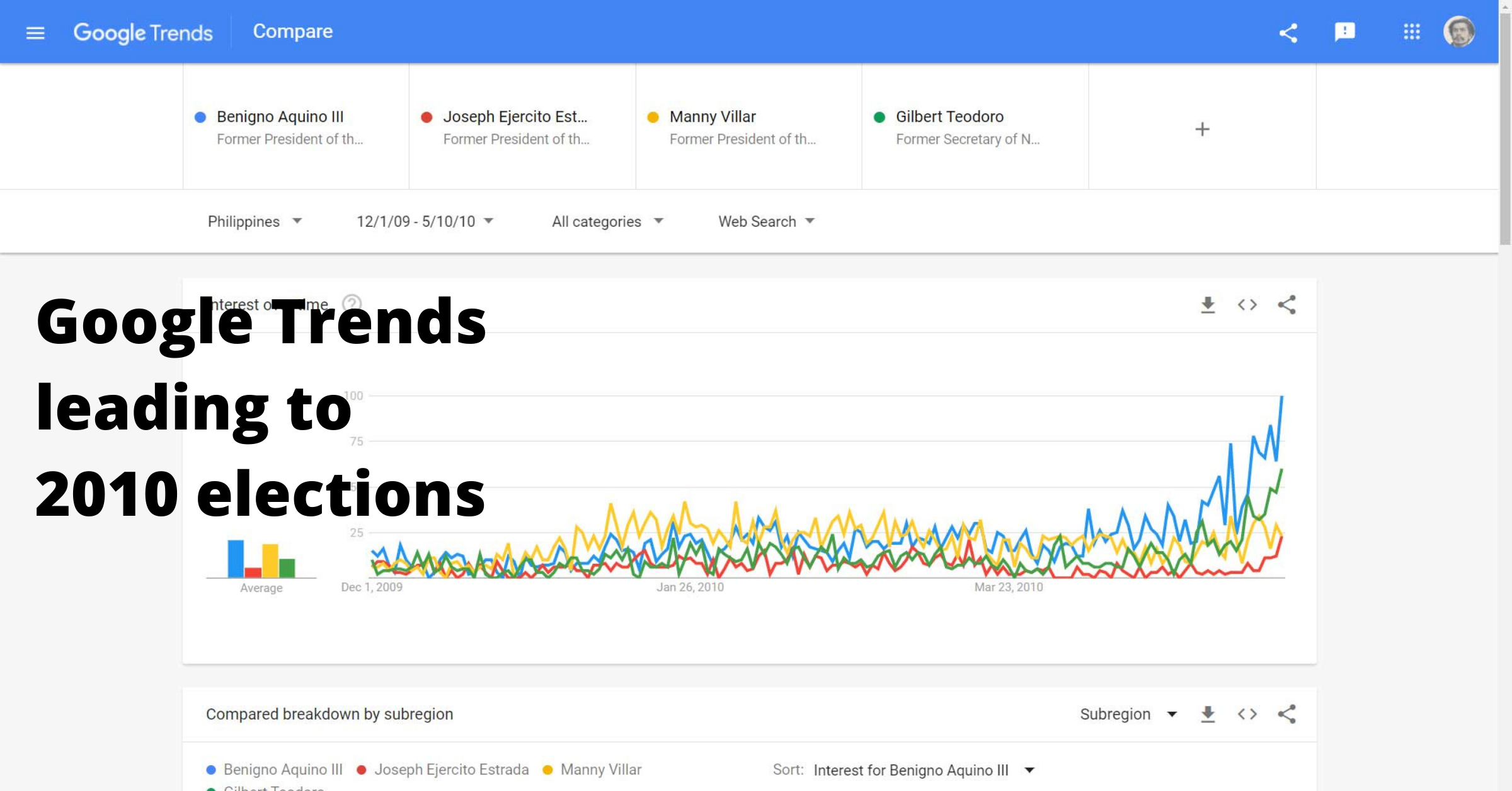
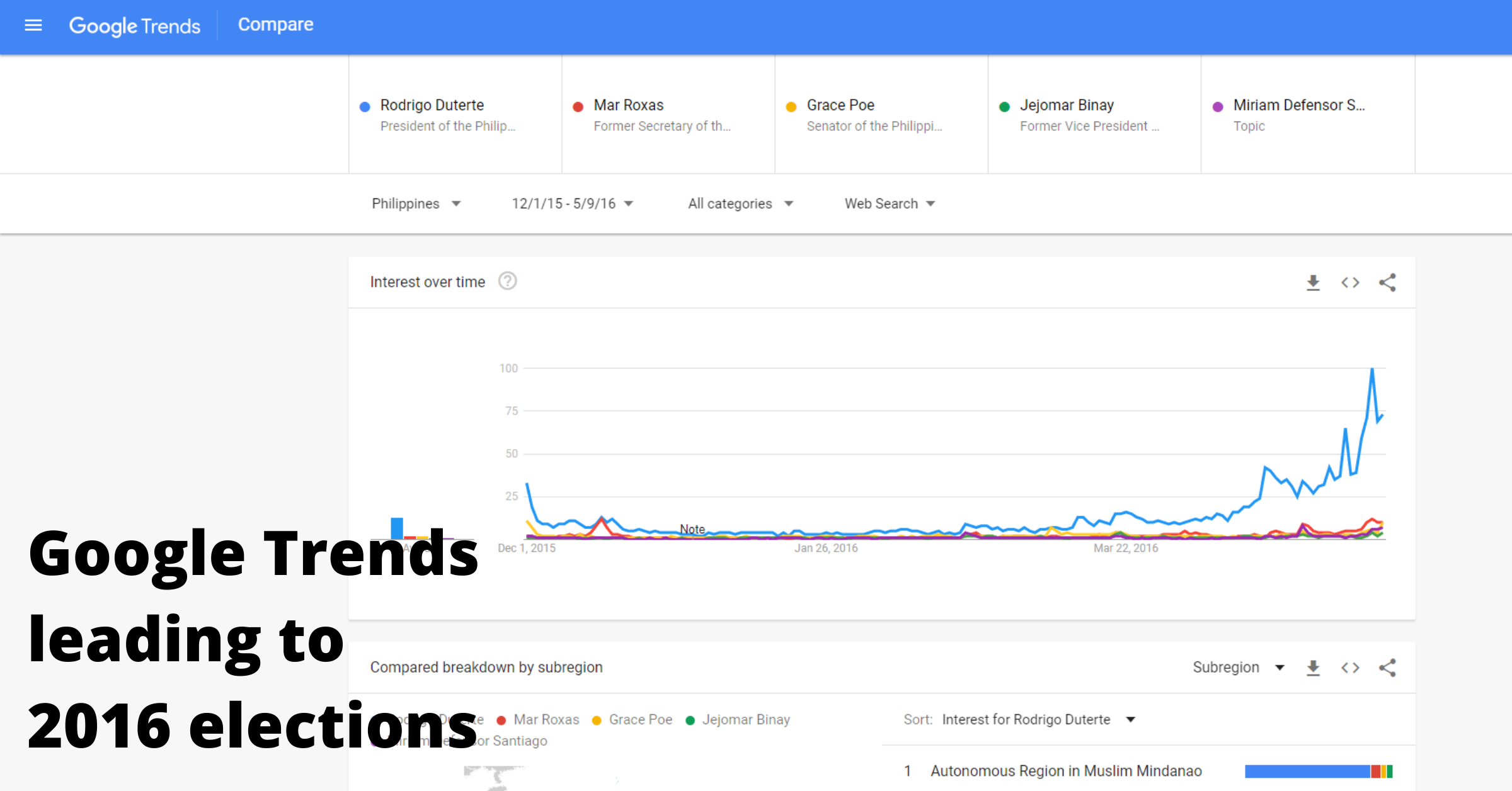
“This research confirms that the information available on the web and that shows citizens’ concerns and interests is a reliable source for predicting voting intention,” according to the research by Camilo Prado-Román, Raúl Gómez-Martínez, and Carmen Orden-Cruz of the Universidad Rey Juan Carlo.
Google Trends and its viability in predicting electoral outcomes generated discussions and online buzz in the Philippines when tracking showed that Vice President Leni Robredo generated higher search interest than traditional survey leader Ferdinand Marcos Jr.
Google has published a dedicated Google Trends page for the Philippine elections.
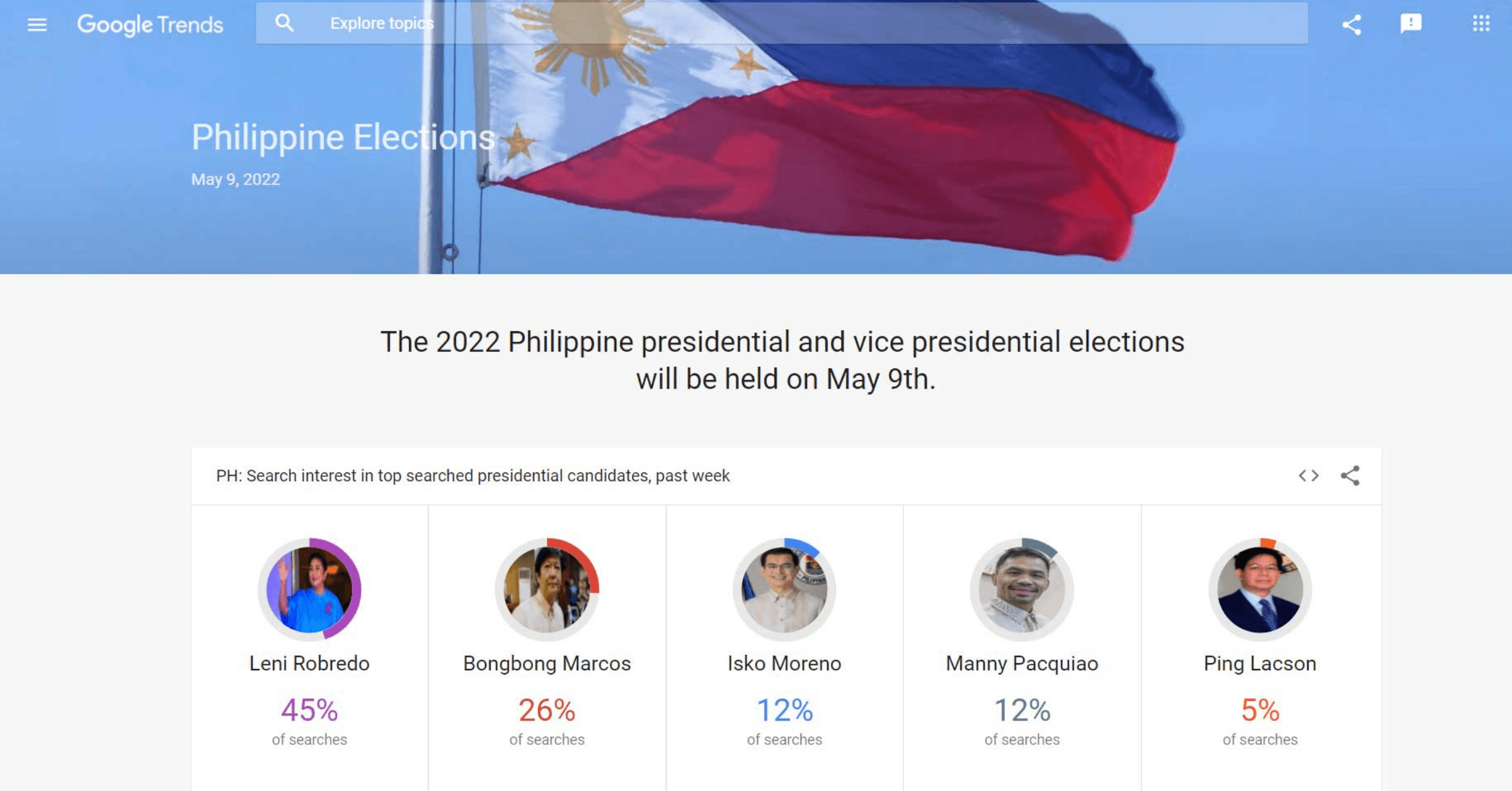
A review of Google Trends in the months leading up to both the 2010 and 2016 presidential elections shows that it indeed predicted the victory of the late President Benigno Aquino III and President Rodrigo Duterte. Duterte, for example, broke away from the pack when it came to search interests only in March 2016. In the same month, the Social Weather Stations (SWS) survey showed him behind Grace Poe, Jejomar Binay, and Mar Roxas. He would take the lead in SWS’ April release. Data scientist Wilson Chua said in explaining their social media election analytics that tracking using big data such as search requests is ahead of polling results because “sentiment predicts future preference.”
“Big data in the form of Google search has emerged as the most powerful predictor of political behavior compared with other aggregate measures,” the paper said, quoting another study, “Using Big Data Versus Alternative Measures of Aggregate Data to Predict the US 2016 Presidential Election.”
That study showed that “data generated on digital channels reflects citizens’ attitudes and intentions, and therefore have an explanatory and predictive nature.”
The paper by the Universidad Rey Juan Carlo researchers said there have been many studies on the impact of digital media on campaigns. The studies have one common theme, “that the volume of keywords searched on the internet or contained in chats on social networks such as Twitter are revealing the current and future thinking of a significant amount of the population.”
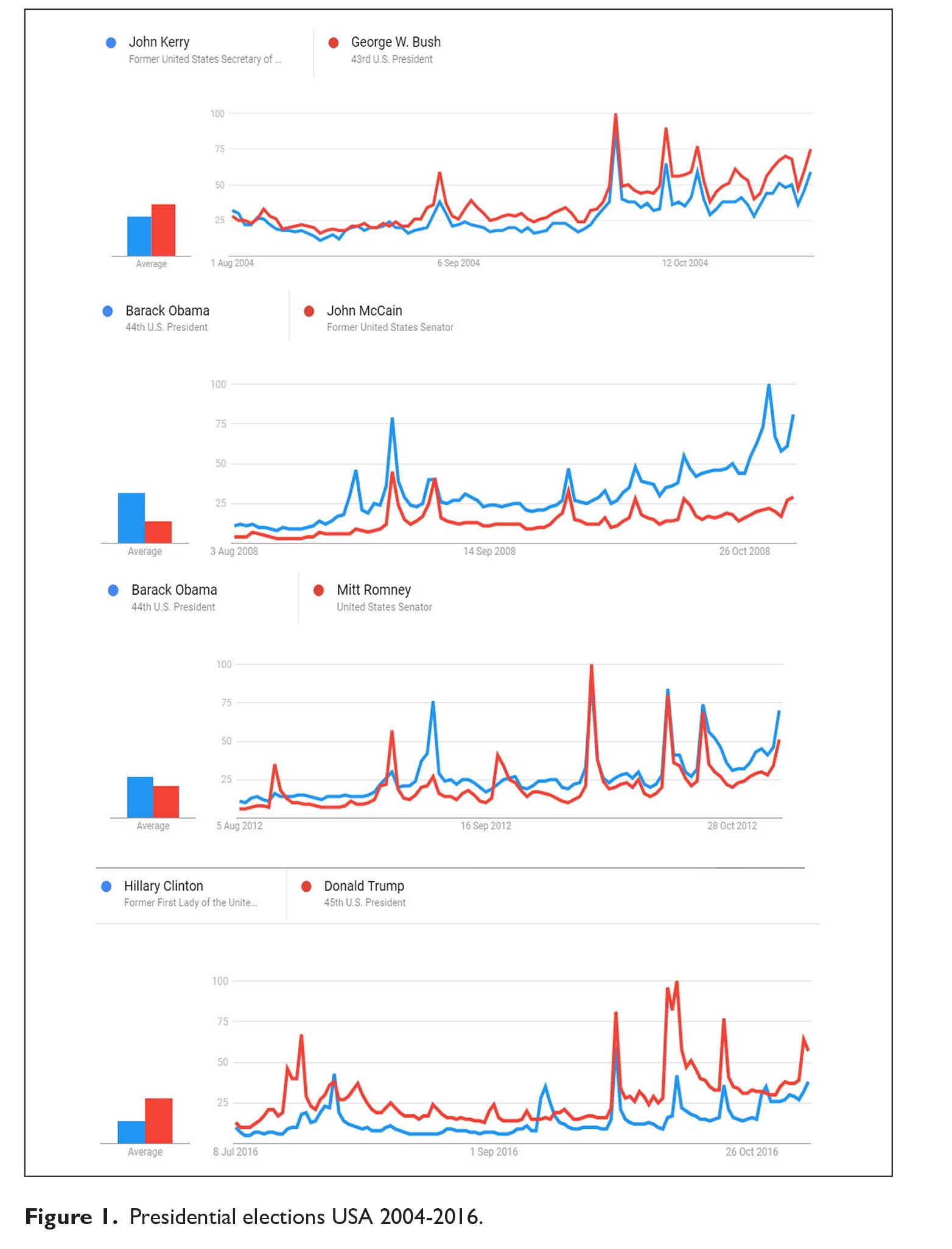
The paper said Google Trends “has predictive capacity in short periods of time and even under a high-volatility scenario such as the Greek referendum in 2015 on the approval or rejection of conditional financial aid from the European Union.”
There is also “strong correlation between potential voters’ searches and election results” in the national elections in Greece and Spain and with the German elections of 2005, 2009, and 2013.
The researchers predicted that the winner of the 2020 US election would be “the one that arouses the greatest interest among the population of the United States of America and generates the most Google searches.” That missed the mark – Trump lost, even though he does not accept it, despite getting more search interest.
But the researchers added an important caveat, “as long as these searches are related with positive news and the environment remains stable.” In analyzing the 2016 elections that Trump won over Hillary Clinton, they said that “conflicting communication techniques used by Trump led to a greater internet search, but generated a negative bias.”
The researchers said campaign managers should use tools like Google Trends “to make optimal decisions to win the elections.”
“This is particularly important in the case of presidential elections in which candidates’ personalism is greater and they are constantly judged and analyzed by individuals who now also use the internet to access information about them.”
Max is a journalist and blogger based in Cebu. He has written and edited for such publications as The Freeman, The Independent Post, Today, Sun.Star Cebu, Cebu Daily News, Philstar Life, and Rappler.
He is also a mobile app and web developer and co-founded InnoPub Media with his wife Marlen.
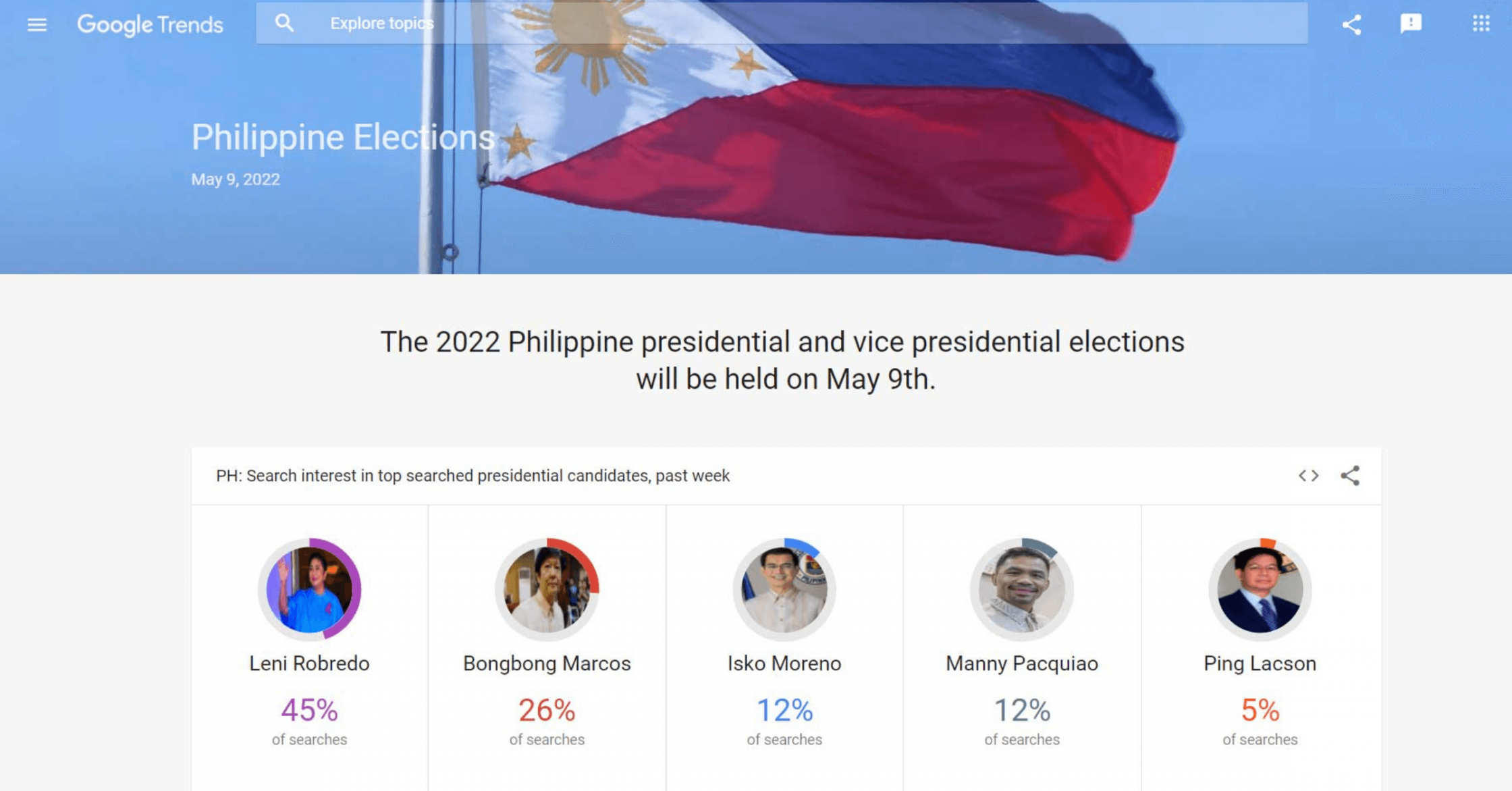

Leave a Reply